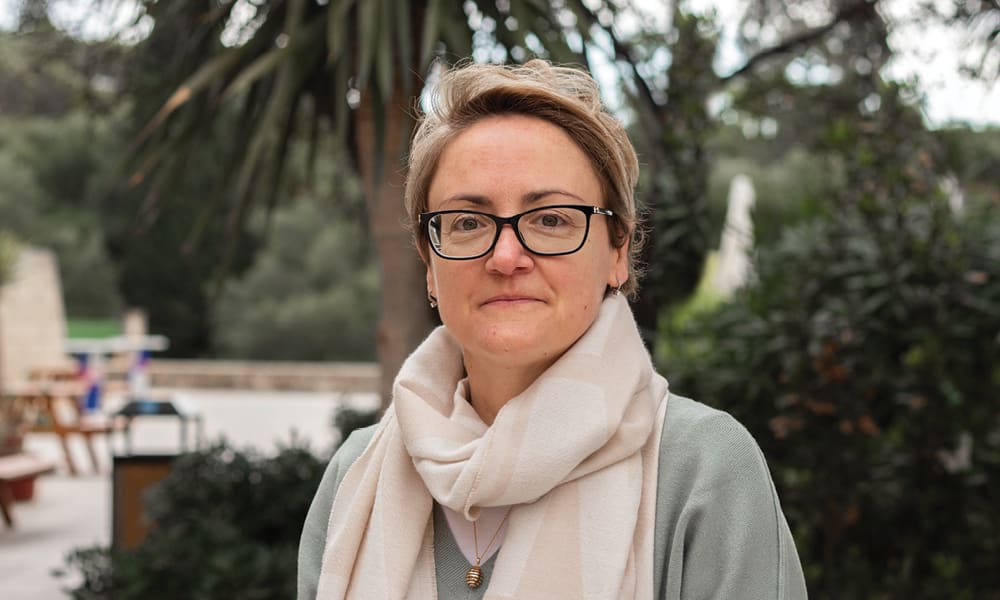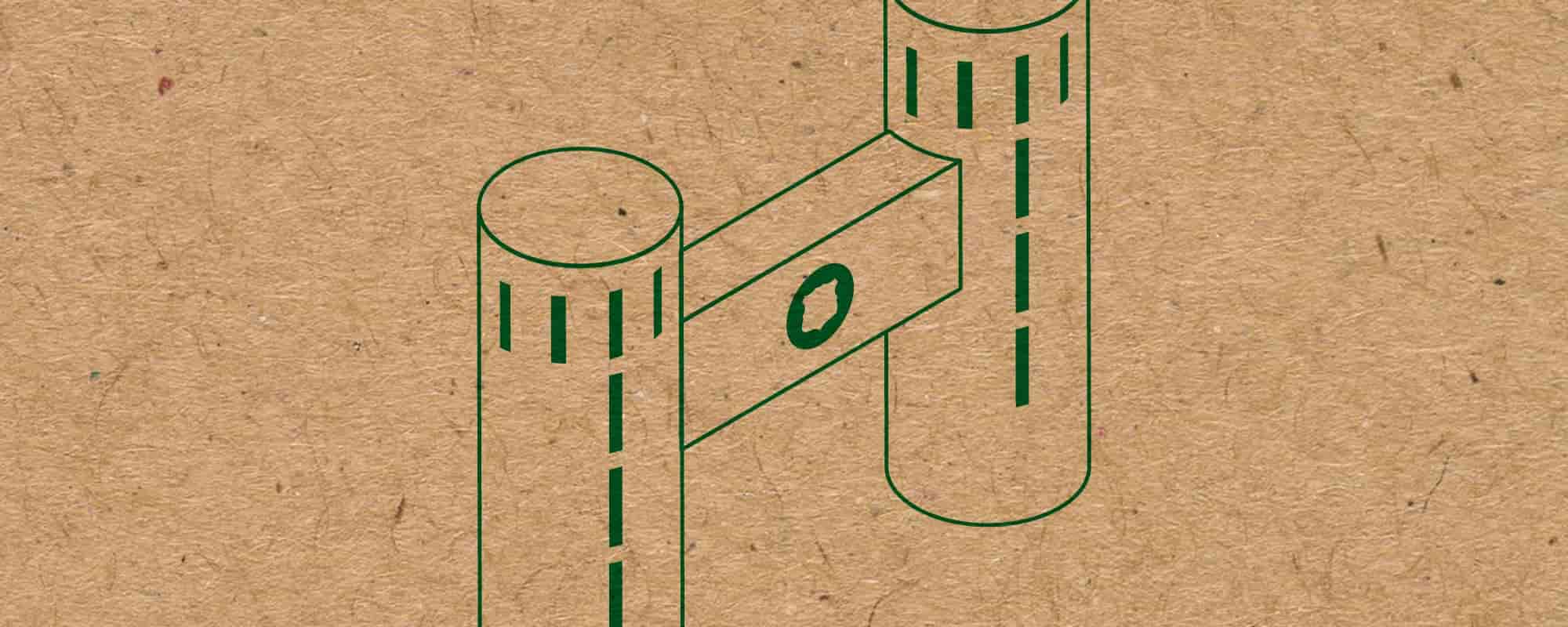The University of Malta (UM) has set out to become a sustainability ‘Living Laboratory’. Jonathan Firbank speaks with Prof. Maria Attard about the Committee for Sustainability at the University of Malta, C-SUM, and its role in this interdisciplinary, interdepartmental experiment.
Any built or maintained space demands thought. Urban planners call on a wide range of expertise, from engineering to aesthetics to sociology. Groundskeepers need an encyclopedic knowledge of flora, techniques for sustaining it, and a singular vision for a changing space. Even volunteers for residents’ associations who administer apartment buildings find themselves needing financial and legal knowledge, not to mention diplomacy when neighbourly disputes run hot. Each of these spaces demands an understanding of sustainability for regulatory, ecological, budgetary, or ethical reasons. A university campus is no exception. To the contrary, it demands all this expertise and more. Fortunately, universities have no shortage of experts.
The Committee for Sustainability at the University of Malta (C-SUM), taps into this resource of thought. As its chair, Prof. Maria Attard describes it as ‘distinct because of its interdisciplinary and interdepartmental nature.’ In addition to academic specialisations, its members’ expertise is sourced from finance, human resources, capital development, the Secretary’s Office, and the University Students’ Council (KSU). This brings together the academic, administrative, and outreach specialists fundamental to practical sustainability. ‘Sustainability is a cross-cutting theme across administration, management, and the academic functions of the university’, so engaging with people across these fields enables what Attard describes as ‘wide-ranging impact.’ Any venture built on bridging specialisations comes with challenges, but ‘combining the efforts of administration with academic work is the only way the university’s sustainability aspirations can be achieved.’

Photo by Sarah Zammit
Green Beginnings
UM’s Msida campus is home to a large amount of green space that is being developed with forestation and utilisation of groundwater. Prof. Attard sees ‘preserving and enhancing’ this space as a starting point for a broader engagement with sustainability, ‘not only through physical efforts aimed at reducing our consumption, but also to minimise UM’s impact on its surrounding communities and environments.’ This a primary responsibility for UM, not just in ecological terms but also to ‘support economic growth and social sustainability. Any success achieved at the university can be easily shared and transferred to the rest of the island.’ Attard’s personal ‘vision of sustainability at UM is one which transcends the university’s boundaries, where good practices are replicated and shared across the islands – and beyond!’
Attard is not alone in this vision. Sustainability and C-SUM ‘is embedded in the University of Malta Strategic Plan’. UM has set out to become a ‘Living Laboratory’: ‘a place where projects can be implemented as experiments, but using real life situations and conditions.’ Successful experiments from this sustainability testbed will inform broader issues of sustainability in Malta, whether that be regarding Malta’s environmental degradation or its problematic relationship with transport.
‘Msida Campus has a daytime population of around 14,000 people’, more than many Maltese villages. Its space provides ‘the opportunity to test some concepts for later replicability in the islands’ various communities,’ explains Attard.
The campus is not a world apart from Malta; it ‘struggles with many of the sustainability concerns found in the various localities such as land use management, buildings and their energy performance, waste, transport issues’ as well as ‘shared social challenges such as public health, poverty, work-life balance, just to mention a few.’
The Sum of Sustainability
C-SUM was established by Rector Professor Alfred J Vella in 2018, with ‘a remit to foster the culture of sustainability’ amongst staff and students. More specifically, the committee was to discuss, support, and propose actions that need to be implemented for UM to strengthen sustainability across its programmes and spaces. ‘C-SUM has oversight on the various processes’ – administrative, academic, or managerial – at UM. ‘It supports the development of the university’s strategy and vision for sustainability, identifying the areas most important for our campuses.’
The collaborative interdepartmental relationships have three key functions. First, they enable the collection of a wide range of information impacting sustainability, which specialists often have exclusive access to. Second, they provide support to UM’s diverse sustainability projects, which include ‘sustainable buildings, energy consumption, waste, and transport.’ This support might be in the form of research or monitoring, or as direct implementation. ‘Finally the C-SUM is also responsible for communication about sustainability and the importance of raising awareness’, not only of sustainability issues, ‘but also the successes of the university.’
These successes are crucial. The ‘Living Laboratory’ needs them, and it needs to promote them in order to positively influence Malta on a broader scale. Fortunately, UM’s multifaceted approach to sustainability has achieved multifaceted results. For example, ‘the effort into energy conservation and renewable energy technologies is quite remarkable,’ Attard explains. UM has installed photovoltaic solar panels across its buildings and upgraded its lighting, ‘reducing considerably the burden of electricity consumption.’
Waste management is also crucial to sustainable spaces. ‘C-SUM supported the Estates, Facilities and Capital Development Directorate in piloting the first waste management project on campus’, which has improved the university’s waste-separation practices. ‘The small but equally important measures have been the installation of water fountains to reduce plastic waste (and encourage bottle reuse)’ as well as identifying campus walking routes to promote zero-emission health and happiness. ‘C-SUM also shares and promotes the projects implemented by the Green Travel Plan Committee, which work in the area of transport and mobility.’
Fighting Human Habit
It almost goes without saying that C-SUM has met the same obstacle all holistic sustainability efforts meet: human habit. According to Attard, ‘The main challenge is culture. Many of the things we need to see changing stem from human behaviour. Changing electricity consumption habits of individuals or changing the manner in which people dispose of waste are just two examples of these difficulties’ – and ingrained behaviours are institutional as often as they are personal. But these challenges ‘are not insurmountable. In all, we believe there is a very positive attitude across the university to instigate necessary change.’
UM’s positive influence on sustainability outside campus grounds is already emerging. ‘We are delighted to be sharing our experience with other campuses. Since UM is part of the SEA-EU alliance, we have contributed our experiences to a number of interuniversity events sharing good practices about sustainability. The positive feedback received from our partner universities is quite rewarding.’ Attard fondly describes C-SUM’s impact on a United Nations Programme: ‘Just a year or two after C-SUM was set up, the University of Malta featured in The Little Book of Green Nudges. This publication was launched by the United Nations Environment Programme to inspire students across the globe’ to reduce the environmental impact of their campuses. It targeted that great obstacle to sustainability, human habit, by facilitating behavioural change. ‘The book contains 40 nudges – simple measures to make green choices easier – and includes evidence-based guidance on how to reset “default options”, changing the framing of choices and harnessing social influence. The University of Malta was one of the few (around 25) universities featured in the publication,’ thanks to some of its many initiatives – in this case paper usage reduction and sustainable interventions regarding air conditioning. It is C-SUM’s aspiration that this global reach will be replicated locally, benefiting everyone within or without campus grounds.
Today, the world; tomorrow, Malta.





Comments are closed for this article!